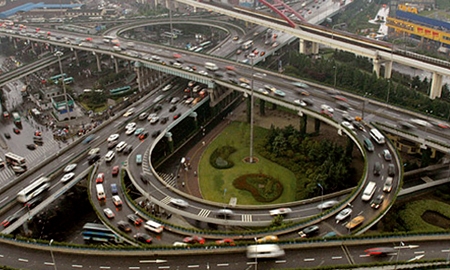Nigeria’s economy means oil and gas. The city of Port Harcourt is vital to the country’s petroleum sector as the capital of Rivers State, which accounts for 48 per cent of Nigerian crude oil produced on-shore and 100 per cent of liquefied natural gas that the country exports around the world.
However, the region is working hard to expand other sectors of the economy, implementing rigorous transparency rules, overhauling the educational system and taking steps on several fronts to boost security and safety.
These measures certainly improve the lives of the average citizen but they also provide Nigerian and foreign companies with the perfect environment for investment.
“Rivers State is well and truly open for business,” proclaims Governor Chibuike Rotimi Amaechi. “We welcome investors, both local and foreign, to come and take advantage of the many opportunities we offer and help us improve the lives of everyone here.”
Rating agencies have taken note, with Standard & Poor’s and Fitch grading Rivers State with B and AA-, respectively.
Regional leaders highlight the state’s unique location as the prime logistical hub for West Africa with the Onne Free Zone as the focal point and massive improvements in transport and other infrastructure make Rivers State a logical choice for doing business.
Among the statewide programmes of urban renewal and infrastructure development is an ambitious project underway to transform the Greater Port Harcourt Area into a well-planned, world-class city.
The Greater Port Harcourt City Development Authority (GPHCDA) is the entity mandated to carry out the Greater Port Harcourt City Project, one that will deliver first-rate infrastructure and quality services to the zone’s 2 million residents over a 1,900 square kilometre-area.
There will be new roads, a public transport system, 24-hour electricity supply, and reliable water, wastewater, waste management and sewage services, as well as well laid out residential, commercial and industrial areas, including parks and gardens.
“Let me assure you all that at the end of this exercise, we will have a world-class city that will be clean, green, orderly and a delight to live in,” said Governor Amaechi when he unveiled the project five years ago.
According to the GPHCDA, funding will be provided by the Rivers State Government and by public-private partnerships (PPPs). Indeed, the private sector is offered various packages, services and incentives, such as a five-year tax holiday and free land in the new city.
In line with his goal to improve public transport, Governor Amaechi in 2009 signed an agreement with TSI Property and Investments Holding Ltd to begin work on an intracity monorail system. Several Intamin P30 electric-driven trains will run along the Rivers Monorail network that will comprise 14 proposed stations. Travelling along at 70 kilometres per hour on raised tracks supported by columns, the monorail will doubtlessly help alleviate traffic and help commuters get around Port Harcourt more comfortably and quickly.
A drastically improved urban area aside, many other factors are also playing a role in attracting investment, such as ensuring that all business is done above board, the governor says.
“We are moving the discretionary powers of the governor, as outlined in the Public Procurement Law, and transferring that power to an agency so there is greater transparency and accountability. We want all processes to be subject to due diligence so that, for instance, when we contract work, we want to ensure that the decision is open and clear, unlike when a state governor would choose to whom to give a contract,” Mr Amaechi explains.
There are also new laws covering PPPs and a new fiscal responsibility law, along with government agencies in charge of these reforms.
While Rivers State is a major petroleum producer and boasts other industries, the governor and his team have identified agriculture as a key economic player that will create jobs for young people and lure foreign investment.
This is already taking place with an Israeli company and a Belgian firm signing multi-million-dollar agreements with the government to produce a range of crops from carrots, cocoa and tomatoes to palm oil.
“All of these investors came here on their own and wanted to do business,” the governor recalls. “They came to Nigeria, asked around and people told them the place to do business was Rivers State.”
Another foreign investor is developing four fish farms to produce 3.5 million tonnes of fish annually and a Mexican company is involved with a 60-40 per cent agricultural joint venture with the government.

0 COMMENTS